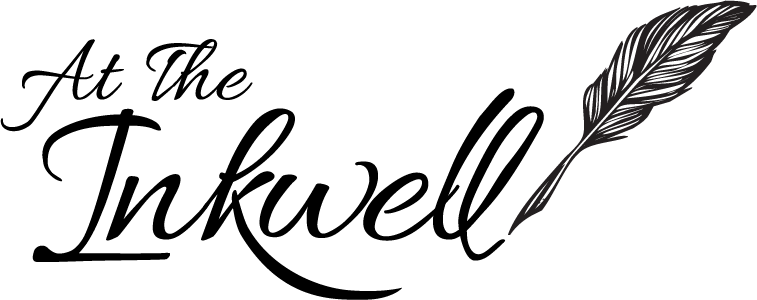Dispatches from Lesbian America
Dispatches from Lesbian America: 42 Short Stories and Memoir by Lesbian Writers. Edited by Xequina Maria Berber, Giovanna Capone, Cheela Romain Smith. Bedazzled Ink Publishing Company, $16.95.
In North America there is a dearth of published lesbian literature but not a dearth of lesbian writing as evidenced by the recent anthology Dispatches from Lesbian America: 42 Short Stories and Memoir by Lesbian Writers. In the midst of diminishing lesbian spaces and silenced voices this collection is like a coming home for lesbians. As Arielle Nyx McKee queries in “Where Are My People?”, “What happened to our coffee shops, our bookstores and bars, the physical spaces where we found each other, wrapped our ideas around each other, cruised?” In their opening remarks, artist Pippa Fleming and editor Giovanna Capone build on the notion of dispatching messengers. The contributing writers are likened to correspondents conveying the “current information representing our collective lesbian consciousness.”
A collection of lesbian writing such as this is outside the realm of contemporary individualism. In its focus and physicality, Dispatches from Lesbian America resembles the grassroots lesbian publications of yore, an earlier time of out and proud revolutionary lesbian collectivism and activist writing. Bonnie J. Morris expounds on this cultural shift in “Mothertongue”, “The bloom is off the rose of radical lesbian literature. The heyday and explosion of our acclaimed women writers from the 1970’s and ’80s has passed. However, many of us are still writing…” Dispatches lays ground for a lesbian cultural renaissance.
Through this grouping of lesbian centered short stories, essays, and a play, the writers of Dispatches represent the gamut of long-time lesbians to those for whom their lesbianism is a newer freedom; these are established and emerging writers, sharing a world viewed through a lesbian lens. Dispatches holds testimonies of resistance and the variousness of lesbian lives. The writings are personal, historical, comedic, sentimental, intrinsically radical, feminist, and political.
Delving into this diversity of lesbian experience consider Charlene Allen’s fictional piece; “Carry Me Home” tells of Raylene’s deep church connections (“Even if you moved to the white suburbs, the black church was still a part of you.”) and her conflicted impulse to act on her father’s preacher influence while undermining her mother’s plan to sabotage Raylene’s lesbian desire. Finding her sermon in the clues to Apostle Paul’s queerness Raylene is intercepted during her speech by memories of her former lover Anata.
“Rough Drafting” is a humorous reveal of Joan Annsfire’s entrance into drafting work, mediating the white, male, heterosexual workplace that was “the war zone of the San Francisco Water Department.” Alison J. Laurie’s “Organizing Lesbians in Aotearoa/New Zealand Including American Influences” offers a history of same-sex relationships among the Maori followed by her experience of the development of women’s liberation and lesbian feminist movements.
Giovanna Capone symbolically connects the dots of a common lesbian journey to evade the strictures of femininity in “New Shoes”, the girlhood story of her search to find the right pair of shoes and, concurrently, her power. In “A Feminist Butch is Not an Oxymoron”, Lenn Keller expresses having felt different as a girl. “I’d have to pretend that I didn’t want to play with the trucks, Legos, and Lincoln Logs.” The author exposes racism, rape, and coming out as a butch lesbian.
Written from prison, Tonya Primm’s “Prison Dykin’: She Wore a Different Uniform” invites the reader into the necessarily discrete intimate relationship between a prisoner with a maintenance job and the guard employed to escort her. In “My Urban Forest” Polly Taylor, an elder lesbian activist since deceased, has diarized the outer and inner worlds of her senior housing and inspired meandering thoughts. The nighttime vision of a lit church is a reminder; “Men who went to Catholic schools make bitter, scornful remarks about nuns…I suspect the women who were their schoolmates have far more ambiguous memories, including passionate crushes.”
Due to their brevity and honesty, the 42 written works in Dispatches are highly readable; its contributors urge connection. Elana Dykewomon discloses in “Paddling Slowly for Another Coast” that she changed her name for reasons that include being afraid to be marked as Jewish, and to “be not a “star” but a cultural worker, a member of the community from/in which I write.” In this vein Dispatches From Lesbian America is what visible lesbian sisterhood reads like.
Yvet Janzen resides in Canada and works in the field of human services in the areas of homelessness and affordable housing. She is currently completing a BSW. Trained in the visual arts, Yvet holds a BA from the University of Alberta. She continues to take an interest in art-making and writing with a focus on social and community issues.

